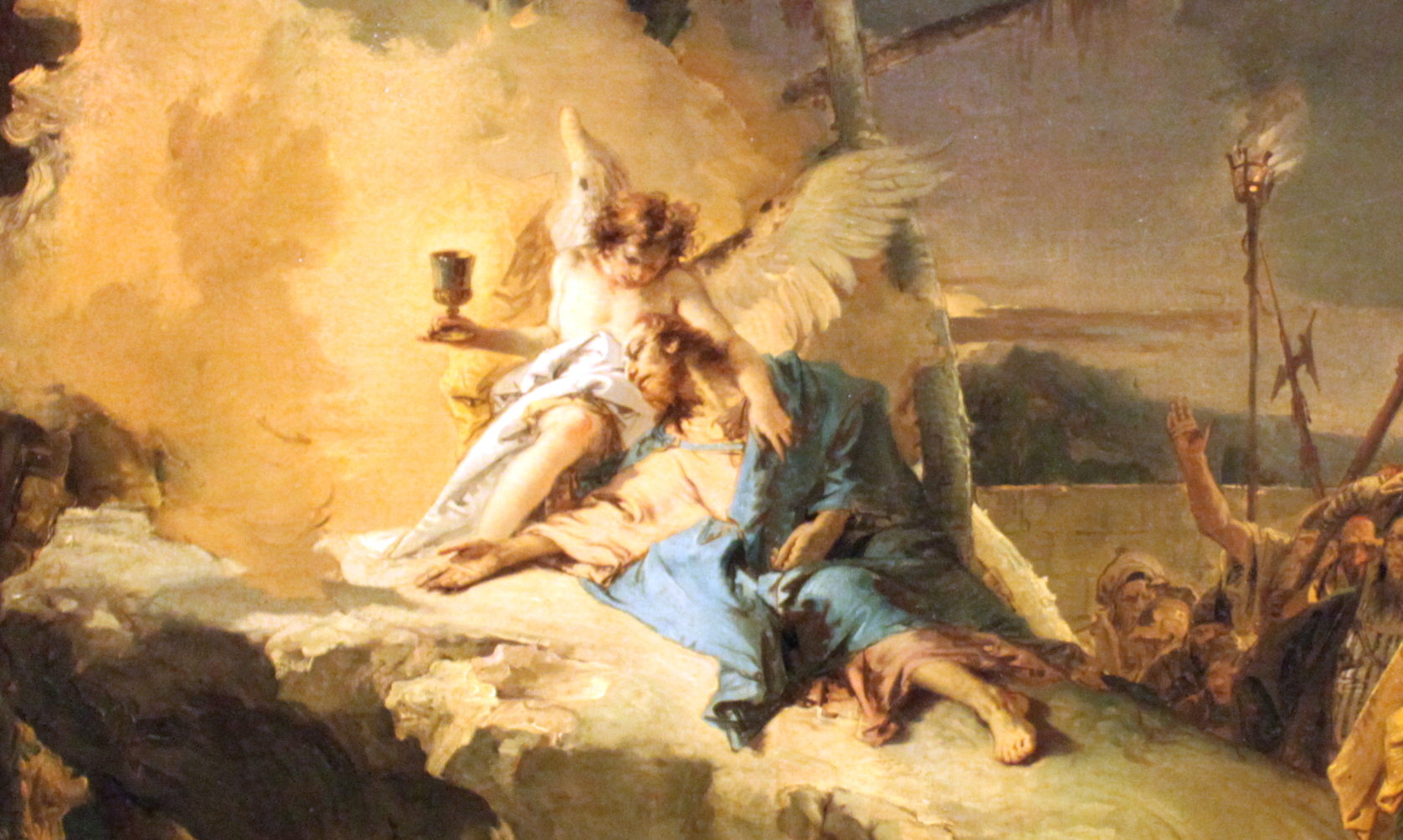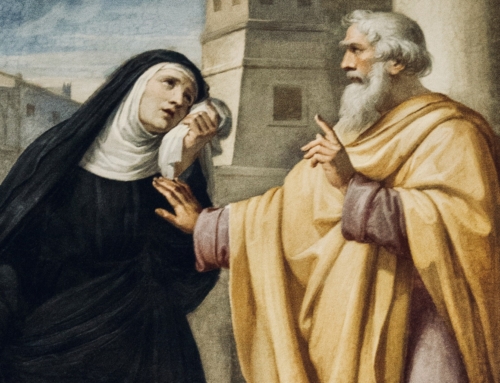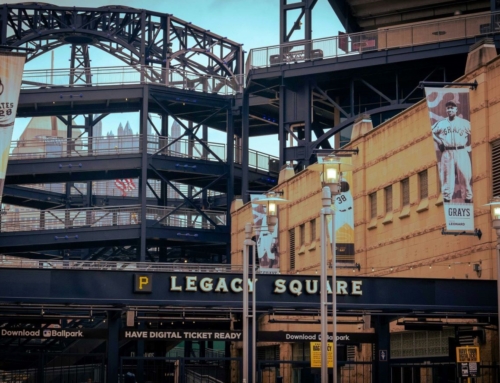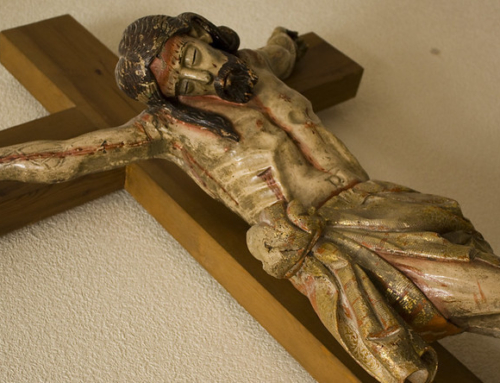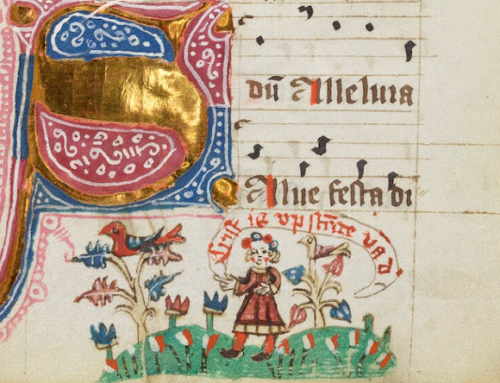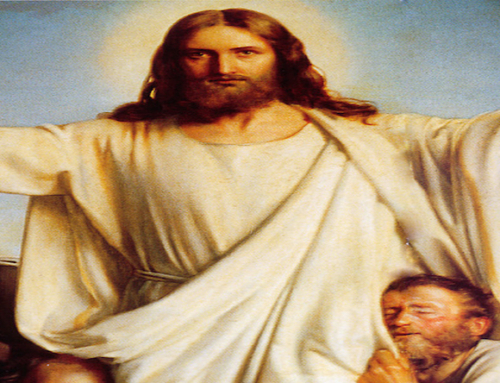Holy Thursday.
The day of the Lord’s Supper.
On this day, when we liturgically commemorate Christ’s institution of the Eucharist, Catholics from all over the world are unable to attend Mass. Of course, many Catholics will be watching live-streamed liturgies and practicing other prayerful devotions (such as those recommended the other day by Brother Vincent), but it can feel very much as though the Eucharistic chalice has passed us by and we have moved directly to Gethsemane.
With our Lord, we face the cup of his Passion. Perhaps this year is a time when we should focus especially on this other event that took place during the night of Holy Thursday. What can the Agony in the Garden, this period of unique darkness in the life of our Lord, teach us about this very dark time in our own lives?
Like the disciples we are called by our Lord to watch and pray. Although Christ predicted his Passion to his disciples many times, they had not fully understood. Just like us, they are bidden to watch for they know not what. We do not know how long this pandemic will last. We do not know how many more may lose their jobs, how many more will die, what life will look like after the pandemic. We, like the disciples, find ourselves in an inherently uncertain situation.
Although our Lord foretold his Passion, he did not give his disciples immediate preparation in the form of step-by-step instructions. He simply told them, and us, to watch and to pray. In particular, we are called to pray that we may not undergo the test. As social distancing and quarantining continues we undergo tests everyday: tests of anxiety, tests of patience, tests of our virtue, tests of our trust. But we need not and we cannot face any of these tests alone with any hope of success.
As our Lord told St. Peter, the Spirit is willing, but the flesh is weak. And as he had told them shortly before in the Upper Room, apart from him we can do nothing. If we trust too much in our own strength we will end in the same mistake as St. Peter. As we go through this period of anxiety and trial, this Passion, we have the opportunity to be purified and grow closer to our Lord.
But we can only be purified and grow closer to him if we rely on him more and more, even when he seems to be allowing things to happen that we find hard or impossible to understand. Imagine the disciples’ shock that Jesus would simply let himself be betrayed by Judas and arrested by the soldiers—Why would he do that? Why would he allow this person to lose their job? Why would he allow a person whom we love to die? Why would he allow the sacraments to become unavailable to us?
We can also identify with our Lord in this hour of darkness. We are all familiar with the injunction to “offer up” our sufferings and inconveniences for the glory of God and the salvation of souls. But perhaps it is helpful in this painful moment to remember that we are only able to do this because Christ has already identified himself with us. The purpose of the Eucharist which Christ instituted today, and of which so many of us are deprived, is to unite us to himself, to make us members of his body.
In the understanding of the English mystic, Caryll Houselander, Christ lives the mysteries of his life in us. Our loneliness in this time of isolation, our temptations, our struggle to trust, our desire to have this cup of suffering, doubt, and discouragement pass from us, is the loneliness and pain of our Lord. As Houselander says,
“He chose to experience fear, temptation, failure. He suffered loneliness, betrayal, injustice, the spurning of his love, mockery, brutality, utter desolation of spirit, the sense of despair, and death . . . He identified with our suffering because he identified himself with us, and he came not only to lead his own historical life on earth, but to live the life of every man who would receive him into his soul, and to be the way back to joy for every individual.” (Caryll Houselander in Sheed, The Book of the Saviour, 241)
With this confidence, we can pray with Christ the prayer that he taught us, the Our Father, and say with him in Gethsemane: “thy will be done.” Let us pray for one another that we may have the courage to accept his will during this difficult time, a will that “is love and mercy itself.”
✠
Image: Giovanni Battista Tiepolo, Christ in the Garden of Gethsemane

